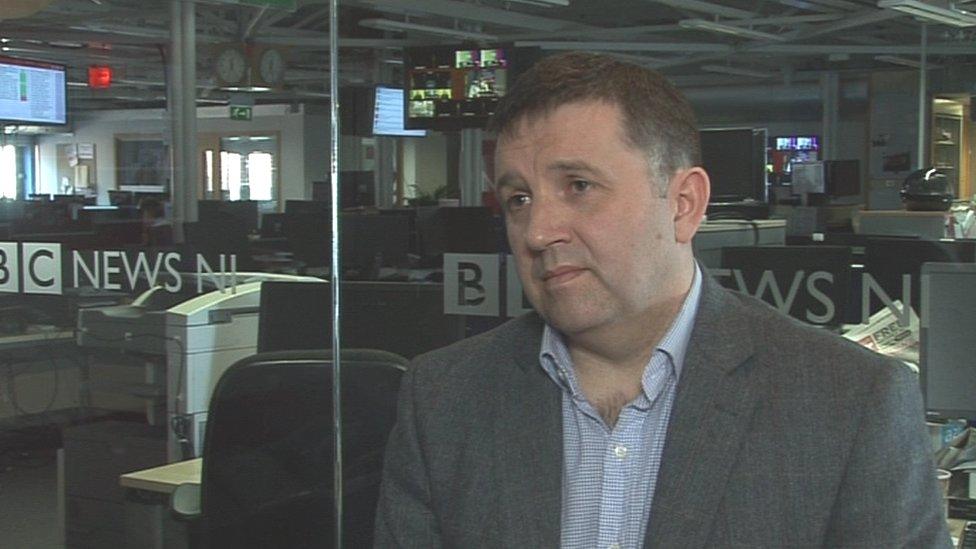Ulster Unionist Party: Steve Aiken to become new leader
- Published
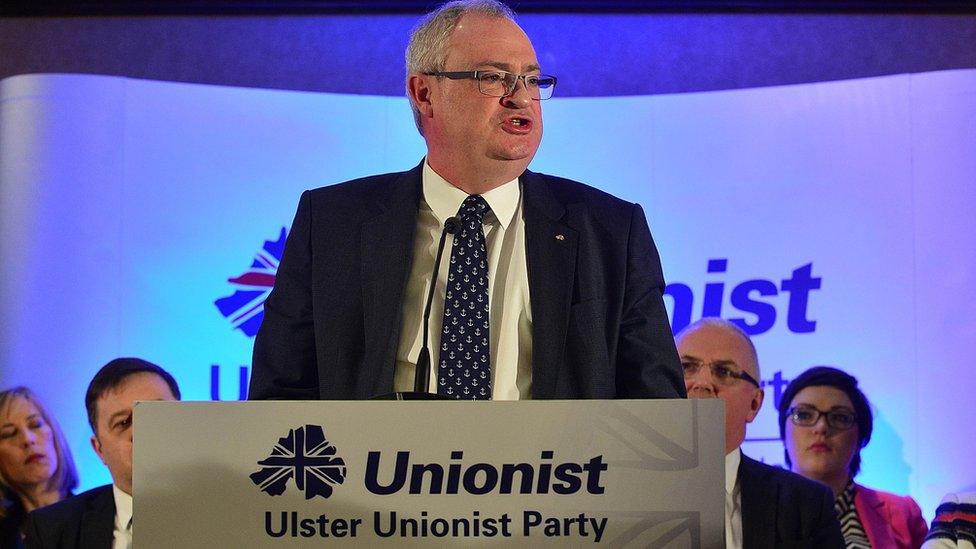
Steve Aiken, MLA for South Antrim, will be the Ulster Unionist Party's new leader
South Antrim MLA Steve Aiken is set to become the next leader of the Ulster Unionist Party (UUP).
The party confirmed on Wednesday night that Mr Aiken, who was elected to the Assembly in 2016, was the only nomination received by officials.
He will be confirmed as leader at the party's AGM on 9 November.
Prior to entering politics, Mr Aiken had served as a Royal Navy commander and was chief executive of the British-Irish Chamber of Commerce.
The Ballyclare man featured in a BBC television documentary in 2007 about his last tour of duty in command of a Royal Navy sub.
He is currently the party's spokesperson on the economy.
In September, Robin Swann announced he would not be seeking re-election as party leader.
'Distraction'
Earlier in the month, Doug Beattie, a retired Army captain, said he would not stand for the leadership, but would instead endorse Mr Aiken.
The Upper Bann MLA said a leadership contest would be "a distraction".
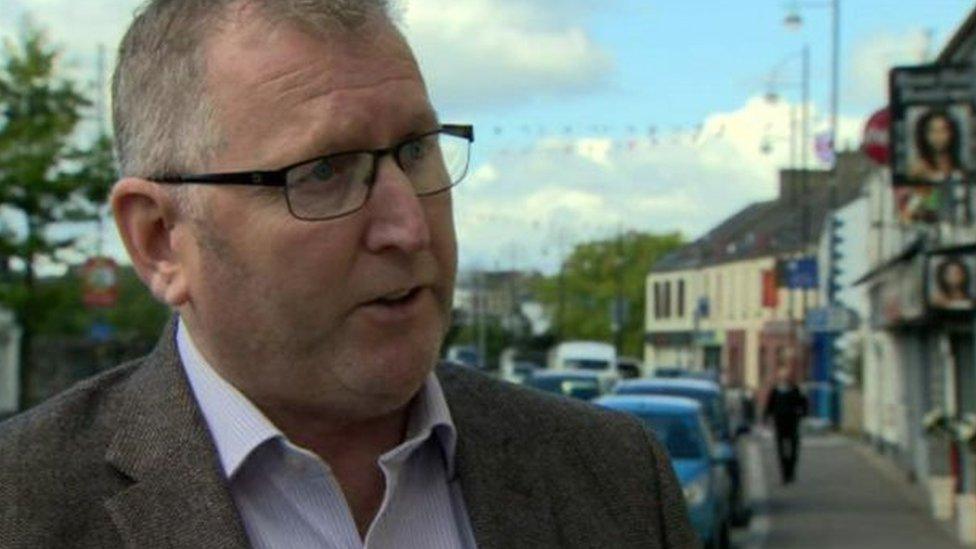
Doug Beattie, a retired Army captain, ruled himself out for a leadership role earlier in the month
He said if elected, Mr Aiken had the authority to bring the party on to a "more progressive path both internally and externally".
Electoral decline
Mr Swann has been leader of the UUP for more than two years, taking over from Mike Nesbitt in 2017.
The party has been facing electoral decline in recent years.
In 2017, it lost six seats in the assembly election, before going on to lose its two MPs at Westminster in the general election several months later.
Mr Swann said he considered resigning after the European election results in May.
The party's candidate, Danny Kennedy, came sixth, after UUP support plummeted by more than 30,000 votes from its result in 2014.
The party lost 13 councillors in the local government elections in May and polled very poorly in Belfast City Council, where it saw its seats drop from seven to just two.
- Published30 September 2019
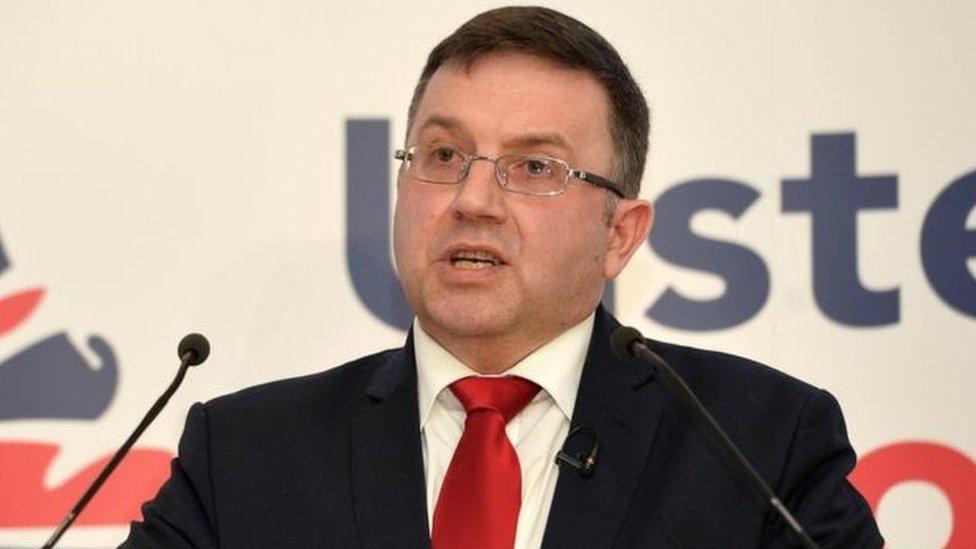
- Published28 May 2019
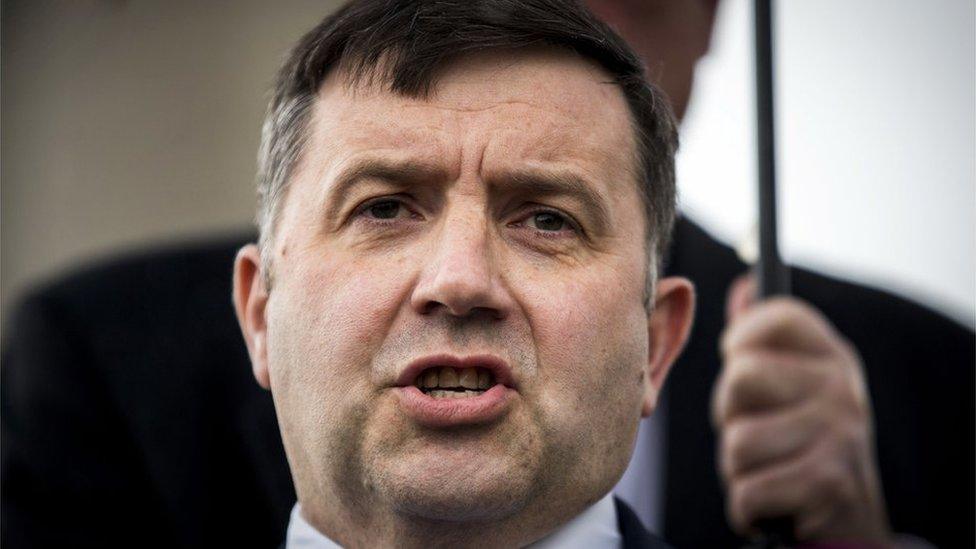
- Published6 August 2019
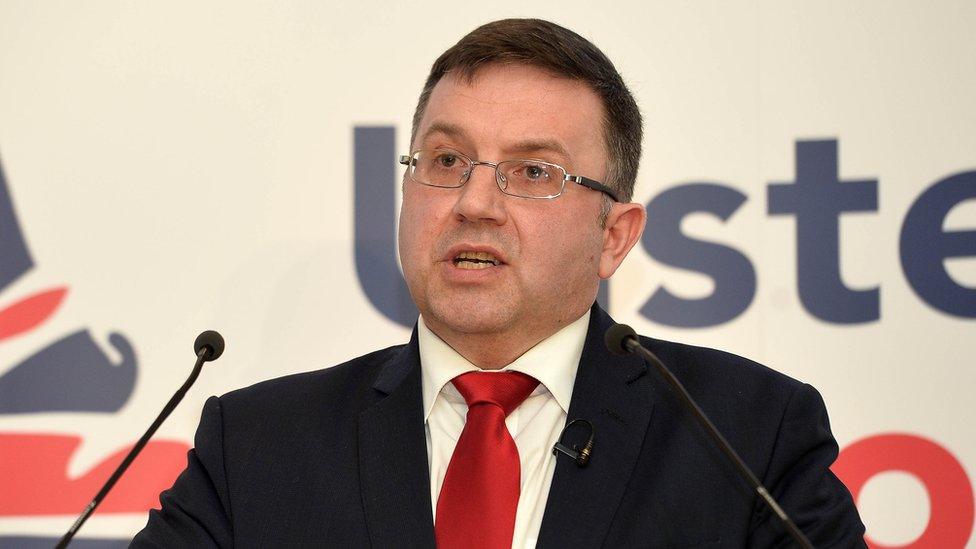
- Published8 April 2017
